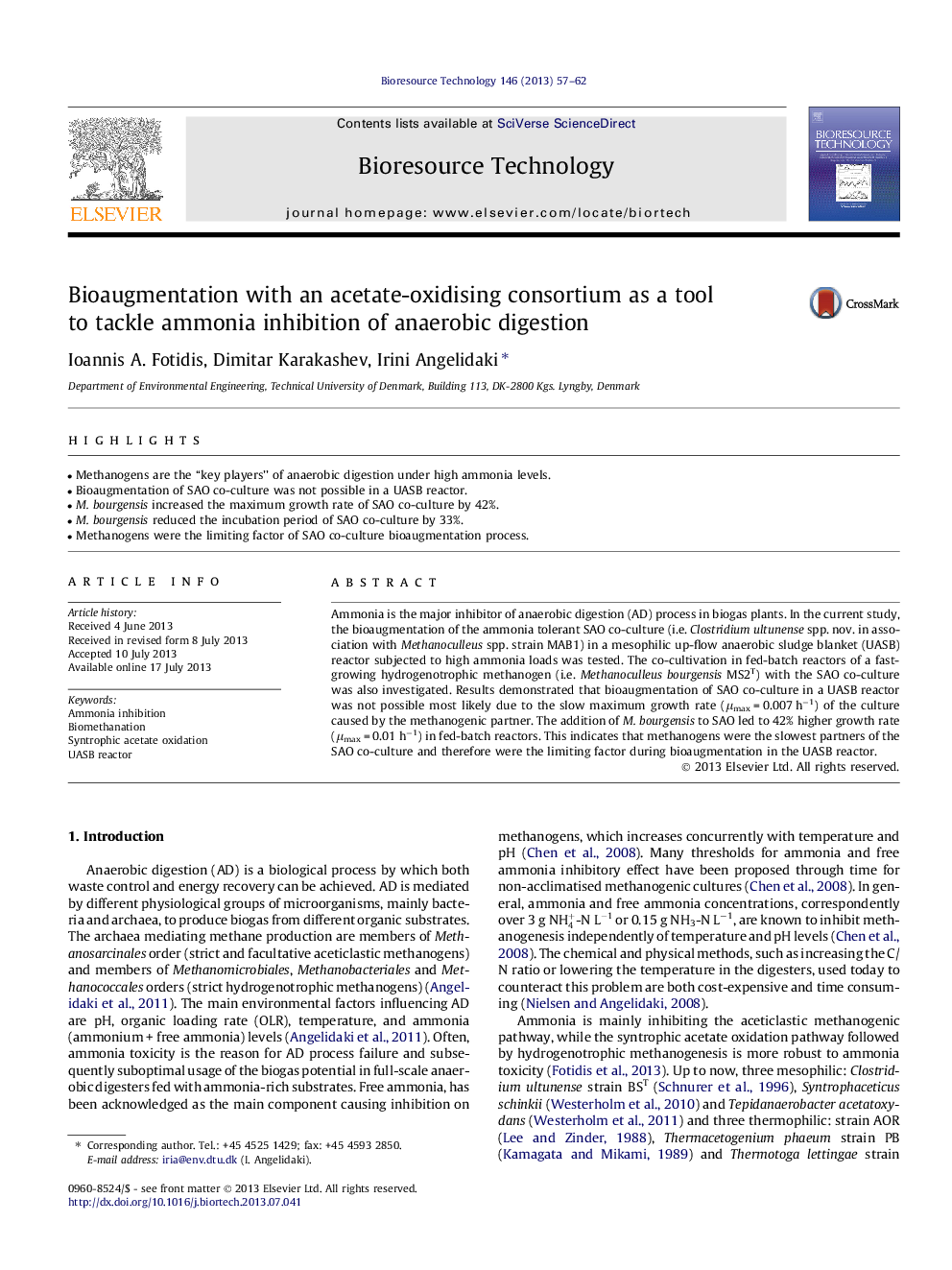| Article ID | Journal | Published Year | Pages | File Type |
|---|---|---|---|---|
| 7080419 | Bioresource Technology | 2013 | 6 Pages |
Abstract
Ammonia is the major inhibitor of anaerobic digestion (AD) process in biogas plants. In the current study, the bioaugmentation of the ammonia tolerant SAO co-culture (i.e. Clostridium ultunense spp. nov. in association with Methanoculleus spp. strain MAB1) in a mesophilic up-flow anaerobic sludge blanket (UASB) reactor subjected to high ammonia loads was tested. The co-cultivation in fed-batch reactors of a fast-growing hydrogenotrophic methanogen (i.e. Methanoculleus bourgensis MS2T) with the SAO co-culture was also investigated. Results demonstrated that bioaugmentation of SAO co-culture in a UASB reactor was not possible most likely due to the slow maximum growth rate (μmax = 0.007 hâ1) of the culture caused by the methanogenic partner. The addition of M. bourgensis to SAO led to 42% higher growth rate (μmax = 0.01 hâ1) in fed-batch reactors. This indicates that methanogens were the slowest partners of the SAO co-culture and therefore were the limiting factor during bioaugmentation in the UASB reactor.
Related Topics
Physical Sciences and Engineering
Chemical Engineering
Process Chemistry and Technology
Authors
Ioannis A. Fotidis, Dimitar Karakashev, Irini Angelidaki,
